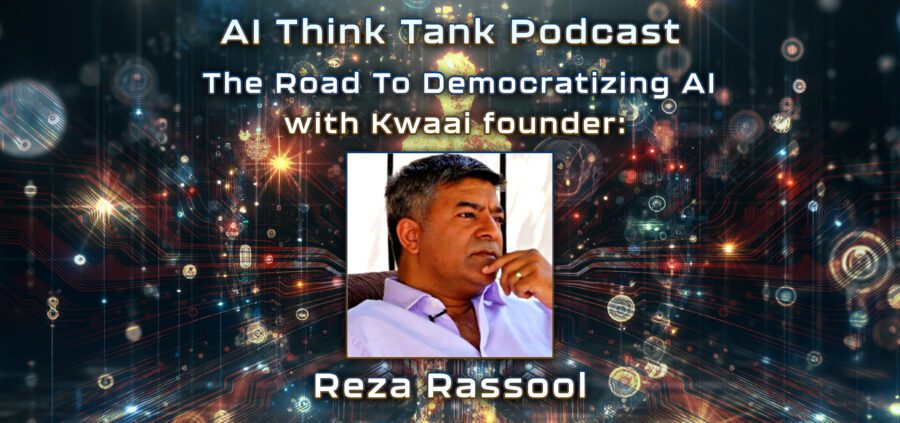
Democratization of AI: An Inevitable Future?
The topic of Artificial Intelligence (AI) democratization took center stage in a recent AI Think Tank Podcast episode, featuring Kwaai founder Reza Rassool and Cryptid Technologies COO Cam Geer. Both industrial heavyweights shared their thought-provoking insights into open-source initiatives and personal AI development. The emerging trends they unveiled carry significant long-term implications and suggest exciting future developments.
Key Insights
The spread of AI will mean open access to digital intelligence, radically transforming industries far and wide.
Open-source initiatives are not merely democratizing AI, but revolutionizing it. By providing free access to AI algorithms, tools, and frameworks, they help foster a system of collective intelligence. Everyone can experiment, innovate, and contribute, unlike the traditionally concentrated tech development scene.
Contributions from reducing AI’s dependency on large corporations significantly augment its versatility and breadth, leading to new forms of AI. One increasingly popular trend highlighted by Geer and Rassool is personal AI development. This enables programmers and non-programmers alike to create personalized AI models suited to unique use cases.
Long-term Implications and Future Developments
The democratization of AI is not just about convenience. It carries critical social, economic, and technological implications. As more people gain access to AI tools, we stand at the verge of an unparalleled outburst of creativity and innovation.
But the long-term implications have a flip side too. With widespread AI access, we encounter thorny questions of AI ethics, misuse, job displacement, and privacy concerns. As AI democratization accelerates, society will confront its risks and challenges in earnest.
Still, the allure of potential benefits inspires future developments. The co-evolution of AI and open-source communities promises a potent brew of power and potential. More refined AI tools, radical transparency, integrated AI-ethics frameworks, and customizable personal AI could become the new norm.
Actionable Advice
To maximize the benefits of AI democratization, stakeholders should consider the following actionable strategies:
- Ensure Open Source Integrity: Companies and developers must commit to maintaining the integrity of open-source AI projects. This includes regular monitoring for any potential abuses and infringements of data privacy.
- Invest in AI Literacy: Stakeholders should foster AI literacy within their own ecosystems. Businesses should look to train their workforces, while educators should integrate AI studies within their curricula.
- Engage with Policymakers: Engaging with policymakers can ensure effective regulation of AI. They should work together to strike a balance between innovation and privacy, and between democratization and security.
In summary, the democratization of AI presents both immense potential and significant challenges. By embracing open-source initiatives, promoting AI literacy, and advocating sensitive regulation, we can navigate its path with wisdom. The future of AI is not just in the hands of tech giants but also individual developers, programmers, and even everyday users.
